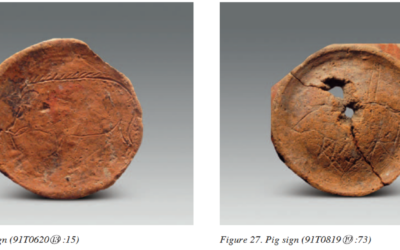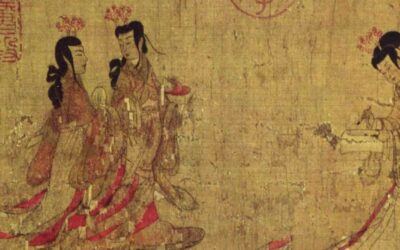Pregnancy and Birth ceremonies among the Sha branch of the Zhuang
The Sha are one of the branches of the Zhuang. They live in Yunnan province. The birth of a new child among them is surrounded by rituals that present significant differences from those of other branches of the Zhuang.
When a woman is pregnant, she receives considerable consideration and support on the part of her friends and relatives. This is particularly true if it is her first pregnancy. Everybody is happy about the arrival of a new member into the family. When the pregnancy reaches five months, they invite a woman shaman to call the small soul.
Upon completion of eight months of pregnancy they invite a male shaman to call the soul once again, because, for the Zhuang, there is a difference between the small soul that is manifested in the first months of the pregnancy, and that of the human being about to be born. Both are relatively simple ceremonies; only close relatives are present.
During the eighth month it is also necessary to carry out the ceremony of being «liberated from the ties». This is dedicated to expelling wicked spirits from the home, to assist in the mother’s tranquility and the child’s security. During this time a goat is sacrificed as an offering.
At the moment of birth it is forbidden for any man to stay in the house, including even the husband. The mother’s aunts usually assist in the childbirth. They, as is their right among the Zhuang, pick up the newly born; they cut the umbilical cord, and then they wash the baby, familiar midwife tasks. But, in the Zhuang context, they kill a chicken and then cook some eggs for the mother in order to restore her vital forces.
They then place on the threshold of the door some branches; to the left, if the newly born is a boy, to the right if it is a girl. It is said that these branches have three functions: to communicate the happiness of the birth, to let people know that a child has been born and that nobody can enter, and to protect the mother and child. The mother doesn’t leave the house during the first three days after the birth of her child. No man is allowed to enter the natal house during these days. Her husband also cannot enter the house, nor can he leave the village.
These three days deserve a small party. The parents invite the neighbors, relatives and friends to drink. These guests bring gifts for the newly born: red eggs, candies, fruit, and rice of five colors. All express their happiness for the parents. From this moment, when the newly born is presented to society, until the completion of the first month, relatives and friends gather to know him/her, bringing with them a chicken, an egg, rice or candied fruits.
When the child completes one month it is necessary to celebrate the naming party. A new ritual, when the friends and relatives come to celebrate, and according to the possibilities of the family, a chicken is killed or some meat is bought. First an offering is made to the ancestors, requesting them to protect the child. The name that is given in this ceremony is the called «name of milk» and it is usually a simple name, an affectionate name, an animal’s name, or a name related to some of the qualities that are already perceived in the child.
With this ceremony conclude the rituals related to the child’s birth.
Suggested reading: Zhuang zu wenhua lun (Discussion about the Zhuang culture). Yunnan Nationalities Press. Kunming.
[Cite]
Last posts
The Shuangdun Signs and the Origins of Chinese Writing
The Shuangdun Signs and the Origins of Chinese Writing When the origins of Chinese writing are discussed, attention almost always turns to the oracle bones of the Shang dynasty. Yet thousands of years before characters were carved onto turtle plastrons, surprisingly...
Zhangjiajie: The Sublime Landscape of the Film Avatar
Zhangjiajie: The Sublime Landscape of the Film Avatar Zhangjiajie is now one of my favorite destinations in China. Not only does it boast some of the country’s most spectacular landscapes, but in recent years it has continued to work on turning these places into...
Geckos and the “Mark of Chastity” in Imperial China: History, Symbolism, and Cultural Context
Geckos and the “Mark of Chastity” in Imperial China: History, Symbolism, and Cultural Context Across the long span of imperial Chinese history, the gecko occupied a surprisingly prominent place in discussions of female chastity, bodily integrity, and the regulation of...







